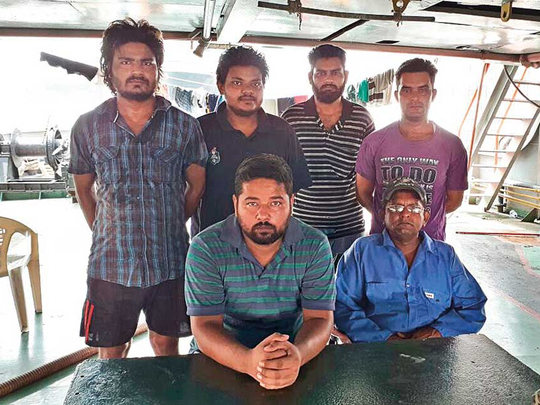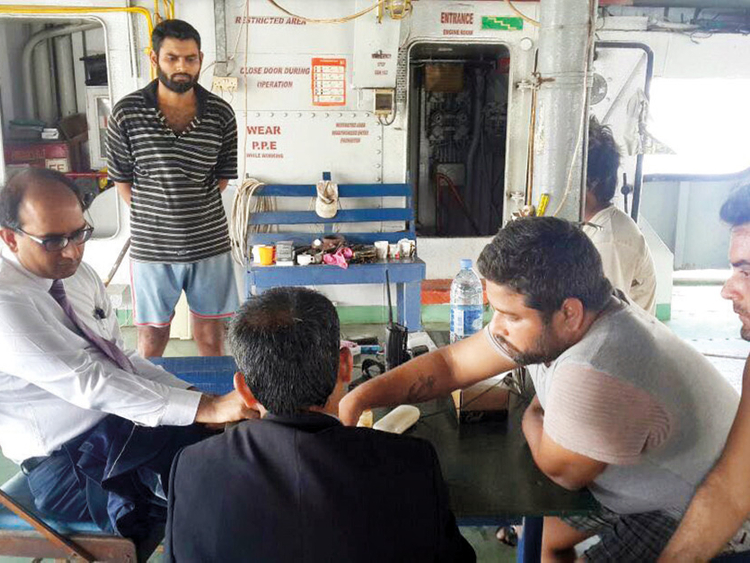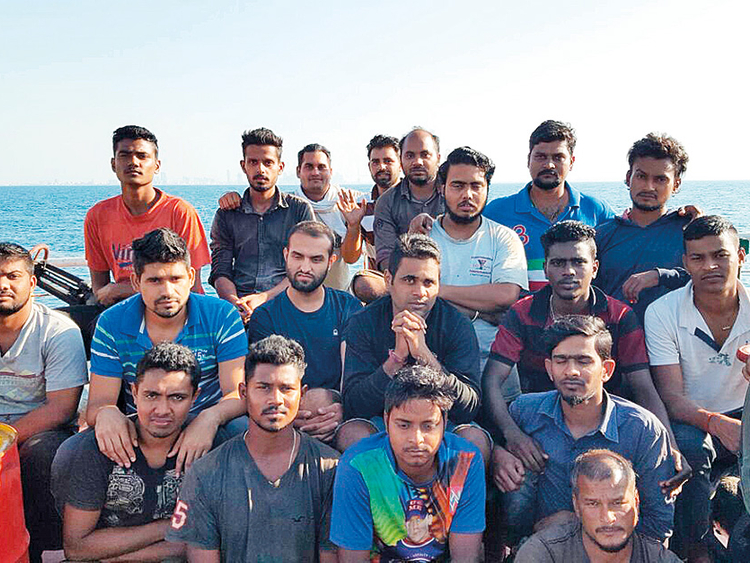
Dubai: The Indian government has tightened recruitment rules for seafarers to stop unscrupulous agents and owners of ships from exploiting them.
The move follows a number of Indian sailors recently getting stranded in UAE waters, the plight of whom has been extensively reported by Gulf News.
The major highlight of the new rules is the government mandating the hiring of sailors for foreign ships only through the e-Migrate online recruitment portal www.emigrate.gov.in
While only agents and recruiters approved by the Directorate General of Shipping (DGS) can hire the sailors, captains and chief engineers can be directly recruited by foreign ship owners. However, their details also have to be registered on the e-Migrate system.
The data on the e-Migrate system will be linked to the Bureau of Immigration, enabling Indian immigration authorities to stop sailors not recruited through the system from leaving the country.
The integration of DG shipping’s portal and e-Migrate portal along-with the Bureau of Immigration system is proposed to be run on a pilot basis for verification of seafarers’ details at immigration checkpoints for three months with effect from September 1.
With the new system in place, only the seafarers recruited by lndian flagship owners, authorised RPS (Recruitment and Placement Services) and senior officers (master or chief engineer) recruited directly by foreign ship owners would be allowed to pass through the immigration checkpoints.
“The seafarers who are recruited by unauthorised RPS and directly by foreign ship owners shall be prevented from passing through the immigration checkpoints,” the DG Shipping said in a Merchant Shipping Notice, which has been posted on the website of the Indian Consulate in Dubai.
Greater accountability
Indian Consul General in Dubai Vipul told Gulf News that the expansion of the e-Migrate system to cover sailors will curb mistreatment and exploitation of seafarers. “I’m happy that these measures have been put in place. This will surely help Indian seafarers,” he said.
“This will stop sailors coming through unscrupulous agents who abandon them on ships when there are problems. There will be greater accountability on the agents … and in case of problems, the government of India will be able to take action through licensed agents in India who recruited the sailors … This will also stop the practice of sailors seeking their Continuous Discharge Certificate (seafarers’ identity document) from flags of convenience.”
He pointed out that the government could not take action against the agents in most of the recent cases of stranded sailors in UAE waters because they were recruited through unauthorised agents. “In many cases we handled, the sailors had no proper contract and we had no proof to take action against the agents who recruited them.”
Earlier in July, Gulf News had reported that nearly 100 Indian sailors aboard 22 ships had been stranded in UAE waters for several months.
The consulate which received distress calls from 97 sailors this summer cited “outstanding salary, non-availability of food, fresh water and fuel, harsh living conditions and no sign-off after the contract period” as the major concerns voiced by the sailors.
‘UAE teamwork’
The mission was involved in sorting out their concerns in cooperation with the Federal Transport Authority of the UAE. It was also regularly keeping the Ministry of External Affairs updated about the situation which demanded further action from the Indian government’s side.
Subsequent to the Gulf News report, which was widely quoted by the Indian media, the Consul-General said, Sushma Swaraj, the Indian Minister of External Affairs held a meeting with senior officials of the ministry and DG Shipping.
Girish Pant, a social worker who has been actively working with the Indian missions in the UAE, FTA and Indian authorities back home to support the stranded sailors, said the coordinated efforts of the whole team for the betterment of stranded sailors in UAE waters would now benefit Indian sailors working across the globe.
“I would say this is the fruit of UAE teamwork. I am very happy that the issues we took up from the UAE received such huge support from the Indian government and this revolutionary step has been taken to stop the exploitation of Indian sailors working everywhere. I would also like to thank Gulf News for highlighting this issue which helped it get immediate attention of local and Indian officials.”
Vipul said around 70 out of the 97 stranded sailors reported earlier had been repatriated so far. “There are still four or five difficult cases going on and some new cases are still coming in. Hopefully, with the help of FTA, we will solve them also soon.”
What is the new recruitment rule for Indian sailors?
The Directorate General of Shipping (DGS) has mandating the employment of Indian seafarers only by RPSL agents and recruiters through the e-Migrate system.
What is RPSL?
RPSL is the Recruitment and Placement Services Licence which is mandated by the DGS for authorised recruiters and agents in India.
What is e-Migrate system?
The e-Migrate portal www.emigrate.gov.in is an online recruitment system initially established for blue-collar workers and housemaids seeking employment in 18 countries where they require emigration clearance from the office of the Protector of Emigrants. A new software for immigration of lndian seafarers has been developed for e-Migrate system.
How will the new recruitment system work?
The approved recruiters have to upload the employment data of sailors on the e-Migrate system. This data will be transmitted online by the e-migrate system to the Bureau of lmmigration (BOL). When a seafarer, whose data is entered into the system, reports at the immigration checkpoint and swipes his passport, then his data flashes on the immigration desk and he may be allowed to pass through.










